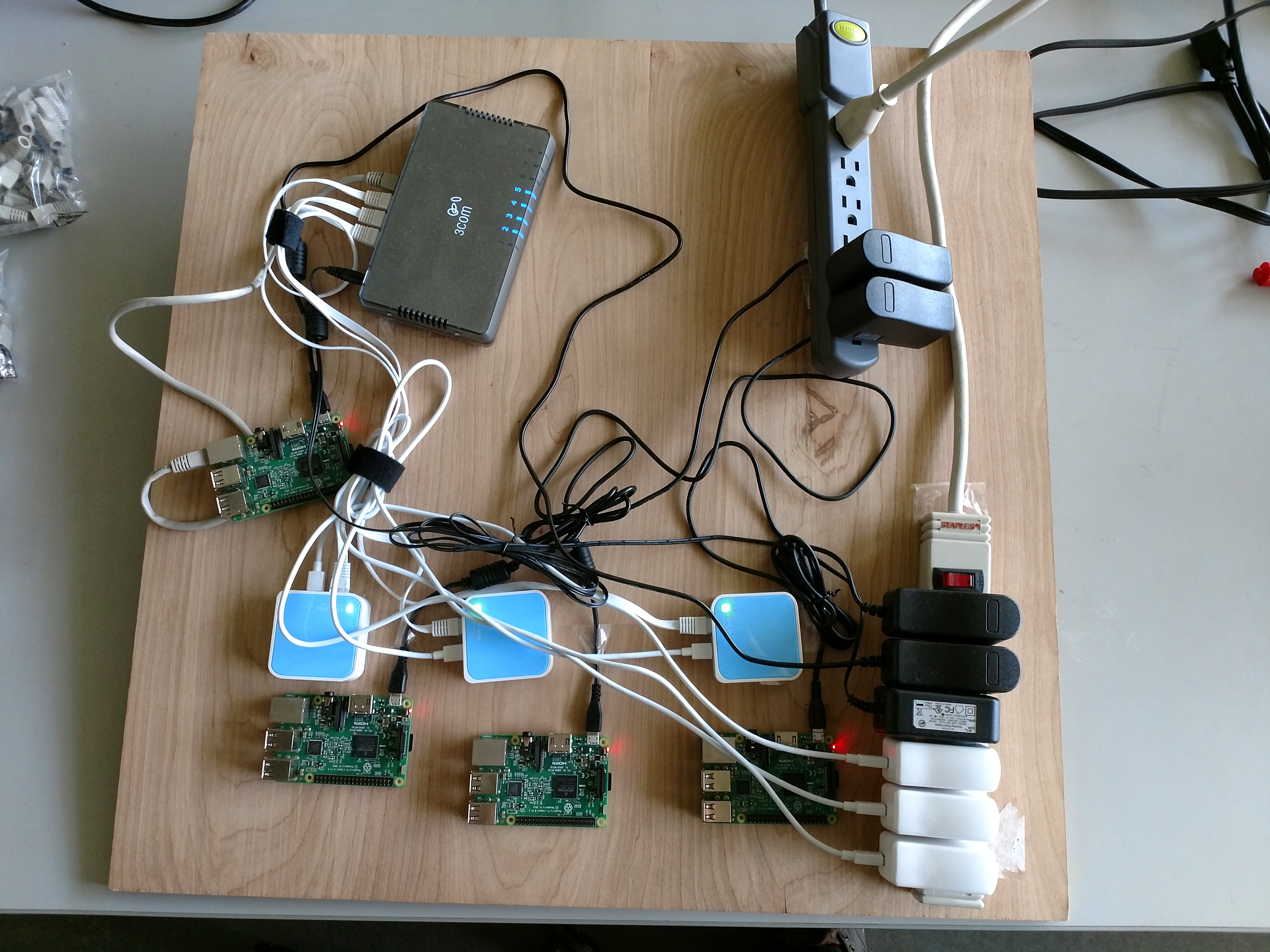Sheep City
Sheep City
As of 29 March 2022 This project is no longer available. However attempts are being made to restore, and improve, the project.
In fall 2016, IASG purchased materials for the Sheep City project. The project consists of 3 small wireless routers and 3 Raspberry Pi 3s acting as wireless clients, as well as an additional Pi to act as the “ISP”. The project is a small scale model of a city street that may have various wireless networks in play.

Each wireless network is different. The first network requires no authentication and does not use encryption. This network is useful for experimenting with passive wireless sniffing in monitor mode. The wireless traffic of one of the Pis can be intercepted and analyzed. This is effective for demonstrating why unsecured wireless networks should not be used.
The second wireless network is secured with WEP (“Wired Equivalent Privacy”). WEP is an obsolete wireless security scheme that can be compromised in a matter of minutes. This network is useful for learning about attacking WEP networks and why they should not be used.
The third network is secured with WPA2 (Wi-Fi Protected Access), which is the modern standard for wireless security in SOHO networks. However, with a weak key and a captured handshake, these networks may not be perfectly secure either. This network allows for the Pi’s 4-way handshake to be captured and used to recover the network’s pre-shared-key (PSK).
Sheep City is ultimately a work-in-progress, and we hope to add more wireless devices to it in the future. This way, once a network is compromised, there are other devices to attack. The Raspberry Pis are also capable of hosting vulnerable services.